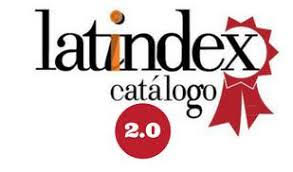Technological innovation in the resolution of local socio-productive problems. Case study: Concordia, Entre Ríos, Argentina
DOI:
https://doi.org/10.22320/07190700.2019.09.02.08Keywords:
Tecnología, Sociedad, Sistemas constructivosAbstract
This paper highlights the promotion of the design and management of technological innovations for the resolution of local socio-productive problems. Working from a point of view on innovation that attempts to overcome an exclusively economic perspective, a habitat production experience carried out in the town of Concordia (Entre Ríos, Argentina) was selected as a paradigmatic case. This experience collectively develops a technology related to wood construction systems in order to promote sustainable production processes based on local resources and knowledge. Likewise, it proposes an innovation that attempts to modify the current modes of production and surpass unidirectional technological transfer with new ways of solving problems cooperatively and charitably. By means of an interpretive study, the main objective is to analyze the case from the critical perspective of technology, relating the concept of technical codes (cognitive and social norms that configure the processes of knowledge production) with the ways of designing and managing habitat production in the experience. As a result, emerging aspects of the case are elucidated, which in the form of inputs or guidelines make it possible to contribute to the creation of new approaches for the production of a sustainable habitat that is more cognitively just.
Downloads
References
DETEM – ANPCYT. Circuito productivo interactoral a partir de una tecnología social para la producción de vivienda de madera. Caso: Concordia, provincia de Entre Rios. 2012.
FEEBENRG, Andrew. Del esencialismo al Constructivismo: la Filosofía de la tecnología en la encrucijada. [en línea] [Consultado 20 de abril de 2009. Disponible en del sitio web: http://www.sfu.ca/~andrewf/translations.html
FRESSOLI. Mariano, SMITH, Adrián, Thomas, Hernán y BORTZ, Gabriela. De las Tecnologías Apropiadas a las Tecnologías Sociales: algunos dilemas persistentes de los movimientos de innovación de base para la construcción de futuros socialmente justos. En: Tecnologías para Incluir. Ocho análisis socio-técnicos orientados al diseño estratégico de artefactos y normativas. Argentina. Quilmes: Editorial Instituto de Estudios Sobre la Ciencia y la Tecnología, 2016.
GIULIANO, Gustavo. Comentarios sobre el texto: Ciencia, Tecnología y Democracia. En: I Encuentro Internacional Culturas Científicas y Alternativas Tecnológicas (Buenos Aires, 2012) Consultado el 05 de julio de 2016 del sitio web Scribd: http://es.scribd.com/doc/20694868/Comentarios-de-Gustavo-Giuliano-sobre-el-trabajo-de-Andrew-Feenberg-www-eiccat-com-ar
HERRERA, Amilcar. La generación de tecnologías en las zonas rurales. En DAGNINO, Renato (Ed), Tecnologia social. Ferramenta para construer outra sociedade Campinas. Brasil: Editorial Komedi, 2010, pp.23-51.
KAZEZ, Ruth. Los estudios de caso y el problema de la selección de la muestra. Aporte del sistema de matrices de datos. Subjetividad y Procesos cognitivos [en línea]. 2009, vol. 13, nº1, pp.71-89. [Consultado 14 de octubre de 2015]
PAD-ANPCYT. Co-diseño de equipamiento para instituciones públicas a partir del recurso maderero local (Eucalyptus Grandis). Constitución de Consorcios Tecno-Productivos, público-privados, en el marco de la Economía Social. 2017
PEYLOUBET, Paula. Convidar Tecnología. Una propuesta a partir de la Co—construcción. Buenos Aires: Editorial Diseño, 2018
PID 0079-ANPCYT. Producción a escala de viviendas de madera, en el marco de un circuito productivo interactoral a partir del uso de una tecnología social. Caso: Concordia, provincia de Entre Ríos. 2016
PROCODAS –ANPCYT. Promoción y capacitación en tecnologías constructivas de eucalipto que dinamicen la economía social de la región, a partir del recurso foresto-industrial emergente, para el fortalecimiento del desarrollo productivo, en el marco del consorcio intermunicipal del departamento de Concordia, Entre Ríos. 2017
PROCODAS – ANPCYT. Tecnología para la inclusión social en el marco del desarrollo local. Caso: Concordia, provincia de Entre Ríos. 2011
SENASA. 2014. [en línea]. Bosques argentinos, actividad forestal y economías regionales. [Consultado 15 de noviembre de 2018]. Disponible en: http://www.senasa.gob.ar/senasa-comunica/infografias/bosques-argentinos-actividad-forestal-y-economias-regionales
SANTOS, Boaventura. Una epistemología del Sur: la reinvención del conocimiento y la emancipación social. México: Editorial CLACSO, 2009
SERAFIM, Milena y DAGNINO, Renato. (2007). Porque é difícil incorporar as demandas sociais na PCT? En: I Congreso Argentino de Estudios Sociales de la Ciencia y de la Tecnología (Quilmes, 5 y 6 de Julio de 2007). Extraído el 20 de julio de 2014 del sitio web: www.mda.gov.br/o/1678254
THOMAS, Hernán y BECERRA, Lucas. Sistemas tecnológicos para el desarrollo inclusivo sustentable. Revista Voces en el Fénix, 2014, nº 37, pp. 120-129
TULA MOLINA, Fernando y GIULIANO, Gustavo. La teoría crítica de la tecnología: revisión de conceptos. Revista Redes [en línea]. 2015, vol. 21, nº 40, pp. 179-214
WINNER, Landon. La ballena y el reactor. Una búsqueda de los límites en la era de la alta tecnología (2º ed) Barcelona: Editorial Gedisa, 2008.
VALDERRAMA, Andrés. Teoría y Crítica de la Construcción Social de la Tecnología. Revista Colombiana de Sociología, 2004, nº 23, pp. 217-233.
VASILACHIS DE GIALDINO, Irene. Estrategias de investigación cualitativa. España, Barcelona: Editorial Gedisa, 2006
Downloads
Published
How to Cite
Issue
Section
License
The content of articles which are published in each edition of Habitat Sustentable, is the exclusive responsibility of the author(s) and does not necessarily represent the thinking or compromise the opinion of University of the Bio-Bio.
The author(s) conserve their copyright and guarantee to the journal, the right of first publication of their work. This will simultaneously be subject to the Creative Commons Recognition License CC BY-SA, which allows others to share-copy, transform or create new materials from this work for non-commercial purposes, as long as they recognize authorship and the first publication in this journal, and its new creations are under a license with the same terms.

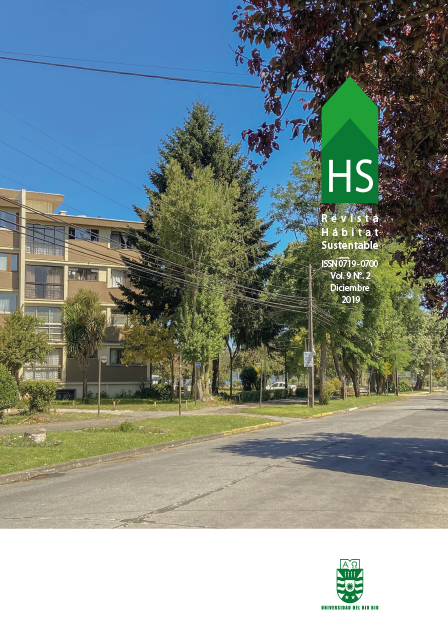
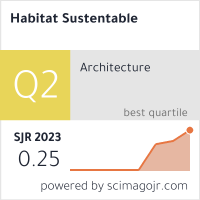






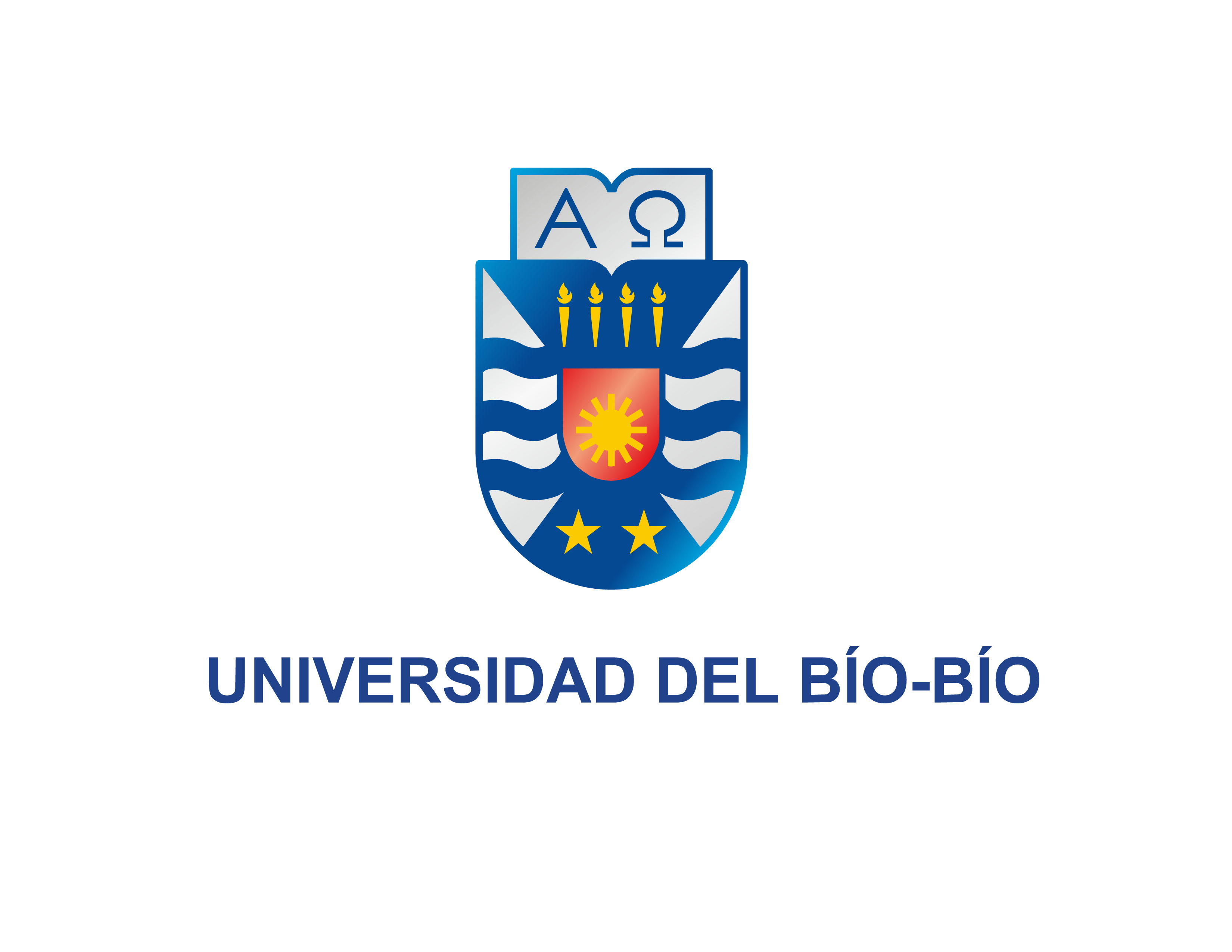

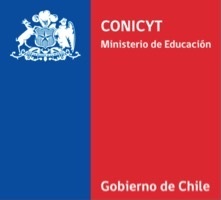 Scientific Information Program/Concurso Fondos de Publicación de Revistas Científicas 2018/ Proyecto Mejoramiento de Visibilidad de Revistas UBB (Código:FP180007).
Scientific Information Program/Concurso Fondos de Publicación de Revistas Científicas 2018/ Proyecto Mejoramiento de Visibilidad de Revistas UBB (Código:FP180007).
